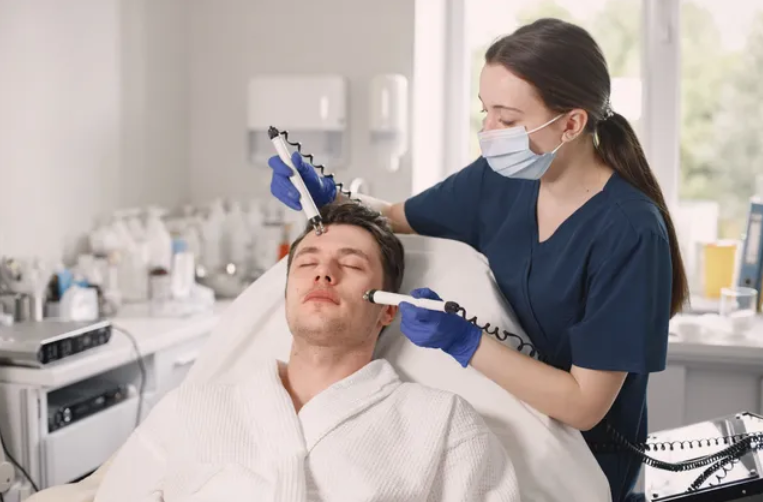The Science of Sobriety: 6 Proven Strategies for Effective Addiction Recovery
Addiction recovery is a complex journey that involves more than just willpower. Scientific research has illuminated strategies that significantly improve the chances of long-term sobriety. Understanding these evidence-based approaches can empower individuals and their loved ones to navigate recovery with greater confidence and success. This article explores six proven strategies grounded in science that support effective addiction recovery.
1. Behavioral Therapy: Rewiring the Brain for Lasting Change
Behavioral therapies are a cornerstone of addiction treatment, targeting the psychological and emotional aspects of substance use disorders. Cognitive Behavioral Therapy (CBT), one of the most widely studied methods, helps individuals recognize and change destructive thought patterns and behaviors associated with addiction.
Research consistently shows that CBT can help people reduce substance use and improve coping skills for managing triggers, cravings, and stress. These therapies often include identifying high-risk situations, developing alternative responses, and building healthier emotional regulation strategies.
Other approaches, such as contingency management (using tangible rewards for staying sober) and motivational interviewing (enhancing readiness to change), also show strong evidence. Together, these therapies can help rewire brain pathways and support healthier decision-making.
Dialectical Behavior Therapy (DBT) has also been effective for individuals with both addiction and co-occurring conditions, particularly where emotional regulation is difficult. DBT combines cognitive-behavioral methods with mindfulness, allowing people to manage distress and build stronger interpersonal skills.
With technology, many CBT-based programs are now available through mobile apps and online platforms, making coping strategies and support more accessible in real time.
2. Medication-Assisted Treatment (MAT): Combining Science with Support
Medication-Assisted Treatment (MAT) integrates FDA-approved medications with counseling and therapy to treat substance use disorders effectively. MAT is especially important for opioid, alcohol, and tobacco addictions.
For opioid use disorder, medications such as methadone, buprenorphine, and naltrexone can reduce cravings and withdrawal symptoms. Studies show MAT improves treatment retention and lowers overdose risk compared to non-medication approaches.
Similarly, medications like acamprosate and disulfiram are used in alcohol recovery to help reduce cravings or discourage drinking. While not a cure on their own, these medications form an important part of comprehensive care.
3. Support Networks: The Power of Connection in Recovery
Social support plays a critical role in sustaining sobriety. Engaging with peer support groups such as Alcoholics Anonymous (AA), SMART Recovery, or other community-based programs provides accountability, encouragement, and shared experience.
Large evidence reviews show that peer-based mutual-help groups can improve abstinence outcomes compared to some other approaches. These networks also reduce feelings of isolation and provide motivation through role models and shared stories.
Support also extends beyond formal groups. Strong relationships with family, friends, and mentors provide encouragement, reduce stigma, and reinforce positive lifestyle changes that are essential for long-term recovery.
See also: HealthSciencesForumCom Team: Transforming Health Information for Everyone
4. Mindfulness and Stress Reduction: Enhancing Emotional Regulation
Stress and negative emotions are among the most common relapse triggers. Mindfulness-based interventions teach individuals to notice cravings and emotional discomfort without immediately reacting to them.
Mindfulness-Based Relapse Prevention (MBRP) combines meditation, breathing, and cognitive strategies to improve self-awareness and self-control. Clinical studies show that mindfulness programs can reduce relapse risk, lower substance use, and improve symptoms of anxiety and depression compared with standard care.
Integrating mindfulness into recovery provides a holistic approach that strengthens both emotional health and overall well-being.
5. Lifestyle Changes: Building a Foundation for Sobriety
Recovery is not only about abstaining from substances but also about creating a fulfilling, balanced life. Establishing healthy routines around exercise, nutrition, sleep, and hobbies strengthens both body and mind.
Exercise has been shown to improve mood, reduce cravings, and support brain health. Nutrition helps repair physical damage caused by substance use, while regular sleep supports emotional balance and cognitive function. Engaging in meaningful activities and setting personal goals also fosters a sense of purpose beyond addiction.
6. Personalized Treatment Plans: Addressing Individual Needs
Every recovery journey is unique, which is why personalized treatment is vital. Plans tailored to an individual’s history, co-occurring mental health conditions, social environment, and goals are more effective than one-size-fits-all approaches.
Comprehensive assessments by care teams ensure that treatment addresses all aspects of health. For example, individuals with both PTSD and addiction benefit from treatment that addresses both conditions together.
Emerging approaches, such as genetic testing and digital health monitoring, are being explored to make treatment even more individualized, increasing engagement and improving long-term outcomes.
Conclusion
Scientific advancements have transformed addiction recovery from trial-and-error into an evidence-based journey. Behavioral therapies, medication-assisted treatment, peer support, mindfulness, lifestyle changes, and individualized care together form a strong framework for sobriety.
By combining these strategies, individuals can increase their chances of long-term recovery and build healthier, more fulfilling lives. Recovery is possible, and science continues to provide effective tools to make it achievable.






